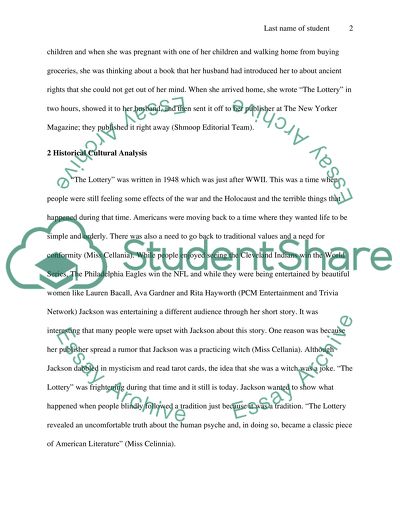Cite this document
(“Playing The Lottery can be Dangerous: Symbolism in Shirley Jacksons Research Paper”, n.d.)
Retrieved from https://studentshare.org/literature/1429668-playing-the-lottery-can-be-dangerous-symbolism-in-shirley-jacksons-short-story
Retrieved from https://studentshare.org/literature/1429668-playing-the-lottery-can-be-dangerous-symbolism-in-shirley-jacksons-short-story
(Playing The Lottery Can Be Dangerous: Symbolism in Shirley Jacksons Research Paper)
https://studentshare.org/literature/1429668-playing-the-lottery-can-be-dangerous-symbolism-in-shirley-jacksons-short-story.
https://studentshare.org/literature/1429668-playing-the-lottery-can-be-dangerous-symbolism-in-shirley-jacksons-short-story.
“Playing The Lottery Can Be Dangerous: Symbolism in Shirley Jacksons Research Paper”, n.d. https://studentshare.org/literature/1429668-playing-the-lottery-can-be-dangerous-symbolism-in-shirley-jacksons-short-story.


